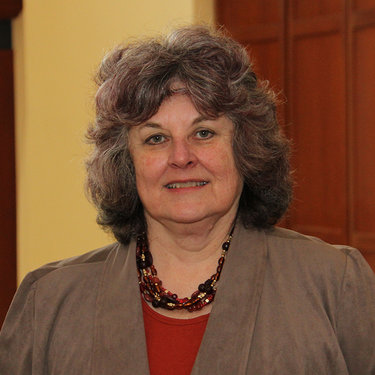Berne election 2017: Mary Alice Molgard for town justice
BERNE — Mary Alice Molgard has studied and taught communications and communications law for years. She now wants to pursue her interests in the legal system further by becoming a town justice in Berne.
Molgard has lived in Berne since 1989. She was raised in Illinois, and previously lived in North Carolina and Virginia. She came to upstate New York in 1985 to work as an assistant professor in communications at The College of Saint Rose in Albany.
“I just happened upon Berne … ,” she explained. “I sort of fell in love with the town.”
Molgard is serving her third term as fire commissioner with the Berne Fire District, and also volunteers in the public-affairs division of the American Red Cross. She continues to work as an assistant professor at The College of Saint Rose.
“My specialty areas are in communications law,” she said.
Molgard said that she has always been interested in the legal system, particularly within a community.
“I think a town justice can serve a community in very positive ways,” she said, such as helping residents understand their rights, or even officiating at a marriage ceremony.
While she does not have a law degree, she found other areas to pursue this passion, such as teaching, and now campaigning for town justice.
“A good part of my professional life, I’ve been involved a great deal in conflict resolution,” she said. She has daily discussions with students about their grades as well as serving as a consultant to help resolve conflicts within companies. One included a local school for troubled youth and organizations in North Carolina and Virginia.
“I worked sort of as a mediator in that sense,” she said.
Molgard, a Democrat, is running for town justice on the Republican and Independence party lines. She said she had inquired with town Democrats about being considered, but was not chosen. Instead, the town Republicans offered her a spot on their slate.
“I had the opportunity, so I accepted their offer,” she said.
Molgard added she believes the position of judge should be apolitical, and that the town justice should be neutral on community issues.
“I wish the position of town justice was not attached to a political party,” she said.
Molgard notes that, as she does not have family in town, she has a slight advantage in avoiding a conflict of interest as town justice. Were she to come across a case involving a friend, she said that she would recuse herself, and would look to ensure not even a semblance of bias in a case.
“Were it a passing acquaintance, there would not be any difficulty there,” she said, noting that it would be a struggle to avoid anyone whom she had seen in passing in a small town.
Molgard said the town court is often the beginning of a judicial process, such as for an arraignment, but, should she have to oversee a case involving a serious crime, it may be difficult.
“I think that I would be able to put aside emotional difficulties or conflicts,” she added.
Molgard believes that community service is a viable option for sentencing, but it must be applied on a case-by-case basis.
She said that, while she is not completely aware of all the ramifications of the Raise the Age legislation, she finds that applying youthful-offender status when necessary is an alternative that can be used.
“The circumstances for any case would be so different that I would be reluctant to say that it will work in every circumstance,” she said. “But, if the law changes, we will have to be consistent with what the law requires.”
She concluded that she would like residents to know that she will be an impartial town justice.
“I will be fair and consistent in my treatment of them in any cases that come before me,” she said.



